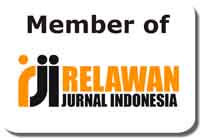Developing IELTS Material through Schoology to EFL Learners’ Listening Comprehension
Abstract
Keywords
Full Text:
PDFReferences
Ahmadi, S. M. (2016). The Importance of Listening Comprehension in Language Learning. 7 International Journal of Research in English Education, 1(1), 7–10.
Atmoko. (2018). Designing Integrated English Materials Using Schoology to Boost Students' Engagement in SMPN 2 Klaten. Yogyakarta: Universitas Sanata Dharma.
Batova, N. (2013). Academic listening : is there a place for bottom-up processing International Journal of Education and Research, 1(4), 1–10.
Borg, W.R. & Gall, M.D. Gall. (1983). Educational Research: An Introduction, Fifth Edition. New York: Longman.
Brown, H. D. (2001). Teaching by principles: An interactive approach to language pedagogy. New York: Addison Wesley Longman, Inc.
Celce, M. (2001). Teaching English as a Second or Foreign Language 3rd Edition. New York: Heinle and Heinle Thompson Learning, Inc.
Chalmers, J., & Walkinshaw, I. (2012). Reading strategies in IELTS tests : Prevalence and impact on outcomes. 24 English Australia Journal, 30(1), 24–39.
Gilakjani, A. P., & Ahmadi, M. R. (2011). A Study of Factors Affecting EFL Learners ’ English Listening Comprehension and the Strategies for Improvement. Journal of Language Teaching and Research, 2(5), 977–988. https://doi.org/10.4304/jltr.2.5.977-988
Hyland, K. (2003). Second language writing. Cambridge: Cambridge University Press
Krashen, S. & Tracy, T. (1983). The natural approach: language acquisition in the classroom. Oxford: Pergamon Press.
Lougheed, L. (2010). Barron’s IELTS: International English Language Testing System. Tangerang: Binarupa Aksara
Syafi’i & Gestanti. (2017). Developing English Materials for EFL Learners at Islamic Junior High School. JEELS, 4(2), 199–220.
Syafi’i, M. L. (2016). Developing Listening Materials for the Tenth Graders. Journal of Education and Linguistics Studies, 3(1), 63–84.
Tabrizi, A. (2017). The Effect of IELTS Listening Strategy Use on the Reduction of IELTS Listening Test Anxiety and on IELTS Listening Performance. Theory and Practice in Language Studies, 7(11), 1025–1036.
https://doi.org/http://dx.doi.org/10.17507/tpls.0711.11
Tigowati1, Efendi, B. (2017). E-learning berbasis schoology dan edmodo : ditinjau dari motivasi dan hasil belajar siswa smk. Elinvo (Electronics, Informatics, and Vocational Education), 2(1).
Todd, V. & Cameron, Penny. (2005). Prepare for IELTS: academic practice test. Sydney: Insearch and International Programs
Underwood, M. (1993b). Effective class management: A practical approach. London and New York: Longman.
Vilmane Liubiniene. (2019). Developing Listening Skills in CLIL Developing Listening Skills in CLIL Vilmantė Liubinienė. Developing Listening Skills in CLIL, 3(1). https://doi.org/1648-2824
Yaniafari, R. (2014). Developing Multimedia-Based Listen Material for 1st Grade Students of SMK. The 3rd UAD TEFL International Conference 2014.
Yeldham, M. (2018). L2 Listening Instruction : More Bottom-up or More Top-down? The Journal of ASIA TEFL, 15(3). https://doi.org/10.18823/asiatefl.2018.15.3.805
Zulyadaini. (2017). A Development of Students ’ Worksheet Based on Contextual Teaching and Learning. IOSR Journal of Mathematics, 13(1), 30–38. https://doi.org/10.9790/5728-1301033038
DOI: http://dx.doi.org/10.31332/lkw.v5i2.1426
Copyright (c) 2019 Hesti Rokhaniyah

This work is licensed under a Creative Commons Attribution-ShareAlike 4.0 International License.
Langkawi: Journal of The Association for Arabic and English indexed by:


















.png)
.png)

.png)
2.png)








